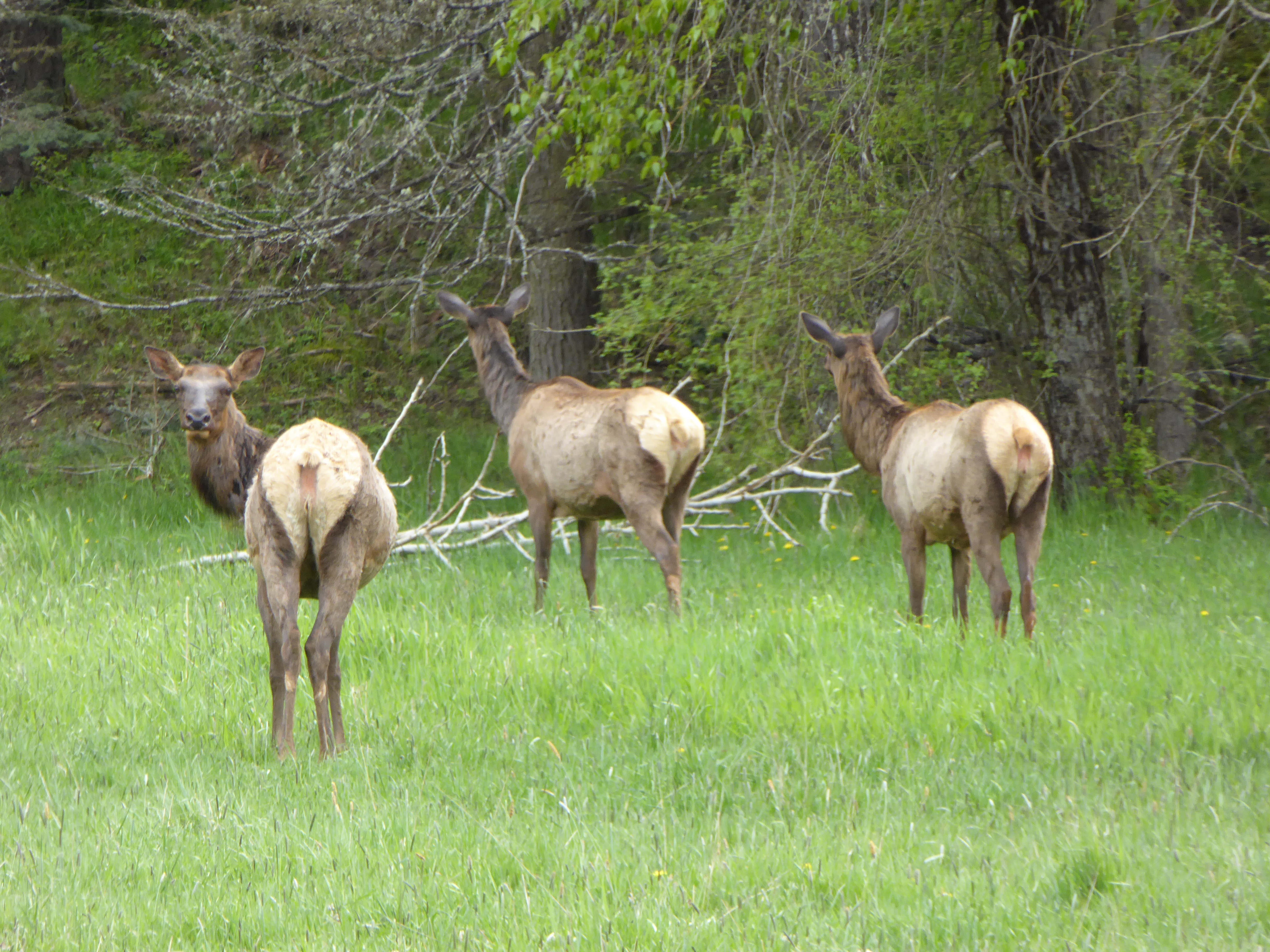With some early season elk hunts starting Aug. 1, Idaho Fish and Game officials remind hunters that they can increase their chances of success and avoid possible problems by obtaining landowner permission, knowing the area they intend to hunt and take extra precautions to properly care for the game meat during summer weather.
“Always get permission, scout the area beforehand, and plan for the heat,” said Rick Ward, Deer and Elk Program Coordinator. “These are challenging hunts, but hunters who plan ahead and adjust to the conditions can do well.”
The majority of early season elk hunting opportunities are antlerless hunts that occur on or within 1 mile of private agricultural land. Early-season hunts across Idaho are a tool that wildlife managers use to address chronic depredation problems by providing additional opportunity to hunters. The goal is to reduce crop damage by harvesting or discouraging animals in specific areas or portions of units.
“Hunters are encouraged to visit with landowners well in advance of their hunts and be sensitive to their concerns of fire, nearby livestock, equipment and crops,” Ward said.
Hunters can find whether there are early season opportunities available under their elk tag in the 2021 Big Game Seasons and Rules brochure, as well as any area or weapon type restrictions. Hunters are encouraged to review the footnote on page 49 of the brochure for special area definitions and descriptions.
Ask first, and know before you go
Since the hunts occur on or near private land, hunters are encouraged to be aware of and follow Idaho’s trespass law. Hunters are reminded that they must have written permission, or other lawful form of permission, to enter or remain on private land. More information and a blank permission form are available on Page 2 of the 2021 Big Game Seasons and Rules brochure. Hunters should also know where they are in proximity to private land boundaries so they can stay within the rules of the hunt.
Fire considerations
These early season hunts take place during fire season, and this year's has already been extremely volatile. Given the extremely dry conditions in much of the state, hunters should take extra precautions to prevent fires during these early season elk hunts.
While most of these hunts take place in an agricultural area, it's possible that fire restrictions or closures may affect portions of some hunt areas that fall within a mile of agricultural land. Hunters can stay abreast of current fire information by visiting Fish and Game's Fire Information webpage, including a map of wildfire closures, and see more details about active fires in Idaho on the InciWeb incident information site.
Beat the heat
Dealing with the heat can be a challenge early season hunters face, which means having a plan if you harvest an animal. To prevent game meat from spoiling – and a potential citation for wasting game – hunters need to act quickly to speed cooling and have everything they need readily available.
"Skinning and quartering or field dressing should be done immediately, and you should line up a place with walk-in cooler ahead of time, then get it there as soon as possible,” Ward said. “Some early season hunters will bone their animals out in the field and use large ice chests to keep the meat cool and clean. In that case, take lots of ice and work efficiently.”
Ward added hunters should prepare for the heat themselves, dress accordingly, and be sure to stay hydrated.


